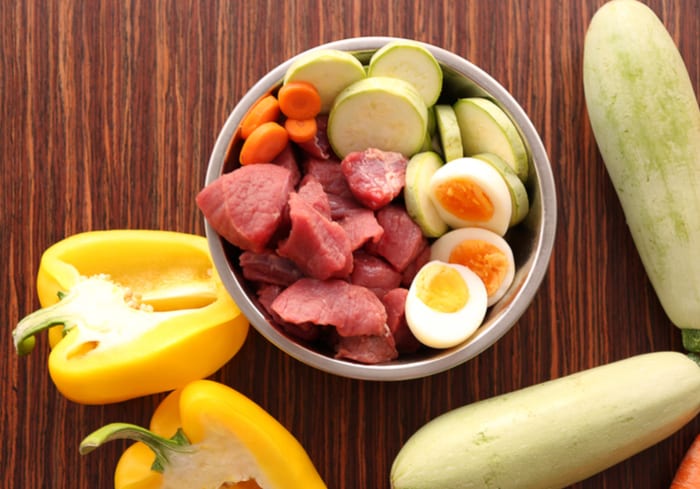The Farmer’s Dog On Personalizing Pet Food Subscriptions

Some startups are born out of personal experience when an entrepreneur sees an unmet need in the market. The Farmer’s Dog Co-founder Brett Podolsky helped start his pet food company when he couldn’t find a way to solve his dog’s stomach ailments. After he tried many different foods on the market, his veterinarian suggested that he try home cooking for her. “The results were like magic,” Podolsky told PYMNTS in an interview.
Today, his company, which makes meals for pets using “human-grade USDA ingredients,” sells freshly cooked foods for dogs based on a feeding plan that is pre-portioned and customized to the needs of each of his customers’ pets. The service, in turn, distributes the meals to consumers through a subscription business model. “We’re essentially a service that makes feeding fresh food really, really easy,” Podolsky said.
To sign up for the service, pet parents visit the company’s website and answer questions about their dogs as if they were going to a vet nutritionist. The number-one variable in the process, according to Podolsky, is how much a dog weighs. As a result, the company asks pet owners for the target weight of their dogs. If a dog is overweight or underweight, “we can help them get to the weight they need to be,” he said. Beyond weight, the service takes other variables — such as food sensitivities, allergies and intolerances — into account when creating a meal plan.
If a customer’s dog is allergic to pork, for instance, Podolsky said a customer would not see pork as an option on his platform. The idea is to provide a different experience from the pet food aisle, where consumers may be presented with a bevy of different options. By contrast, his service offers a more focused selection as a point of differentiation: It only shows food options that fit the needs of a particular customer’s pet. After consumers are presented with personalized choices and make a selection, they receive pre-portioned meals at their door.
The frequency of those subscription deliveries depends on the needs of particular customers. If a customer has two big dogs and lives in New York City, and can only handle a weeks’ worth of food, the company may only send them food once a week. However, if the customer lives in the Midwest and has an extra freezer that can handle eight to 12 weeks’ worth of food, the company could accommodate that frequency as well. As far as the company’s service area is concerned, Podolsky noted that it can ship food to any part of the 48 contiguous United States.
The Pet Food Market
The main problem the service aims to solve is the difficulty pet owners face with cooking fresh foods for their dogs. When Podolsky was cooking for his pet, he found it hard to keep up with his weekly need for cooking. With his service, then, he wanted to pull down all the barriers of keeping a pet owner from giving their dog the healthiest diet possible. He also noted that it is hard to maintain consistency unless a pet owner cooks from the same source, in the same way, every single time.
Podolsky said the offering comes amid a paradigm shift: People are beginning to understand the power that food has on their health. At the same time, he noted that typical dog food is of low quality, as it is “highly processed, and no living being should be eating highly processed food every single day of their lives.” He also noted that, since dogs’ eating patterns are predictable, there was an opportunity to make fresh food for them at scale as a subscription. As it stands, his company notched $39 million in investments in January, bringing its total amount of funding to just under $50 million to date.
Beyond The Farmer’s Dog, other players in the direct-to-consumer market are serving pet owners with online offerings: Ollie prepares fresh food for dogs tailored specifically to them, based on a dog’s age, breed, weight and activity level. The company was co-founded by Gabby Slome, whose vet had (like Podolsky’s) recommended a home-cooked diet for her dog. In the same way, her dog did better on a home-cooked diet, but the preparation of those meals was time-consuming, so she set out to start her pet food company.
In general, Americans love their pets and are willing to spend money on their furry companions. In August of 2017, it was reported that pet product category sales had grown by 40 percent at Amazon. The eCommerce retailer’s sales are an indicator of an overall robust category, per a study by Packaged Facts called “U.S. Pet Market Focus: The Amazon Pet Food and Supplies Shopper.” In fact, pet products are said to comprise one of the fastest-growing internet-based retail categories.
Startups like The Farmer’s Dog and Ollie, then, are betting that consumers are looking for fresher and healthier foods for their pets amid this reportedly growing market.